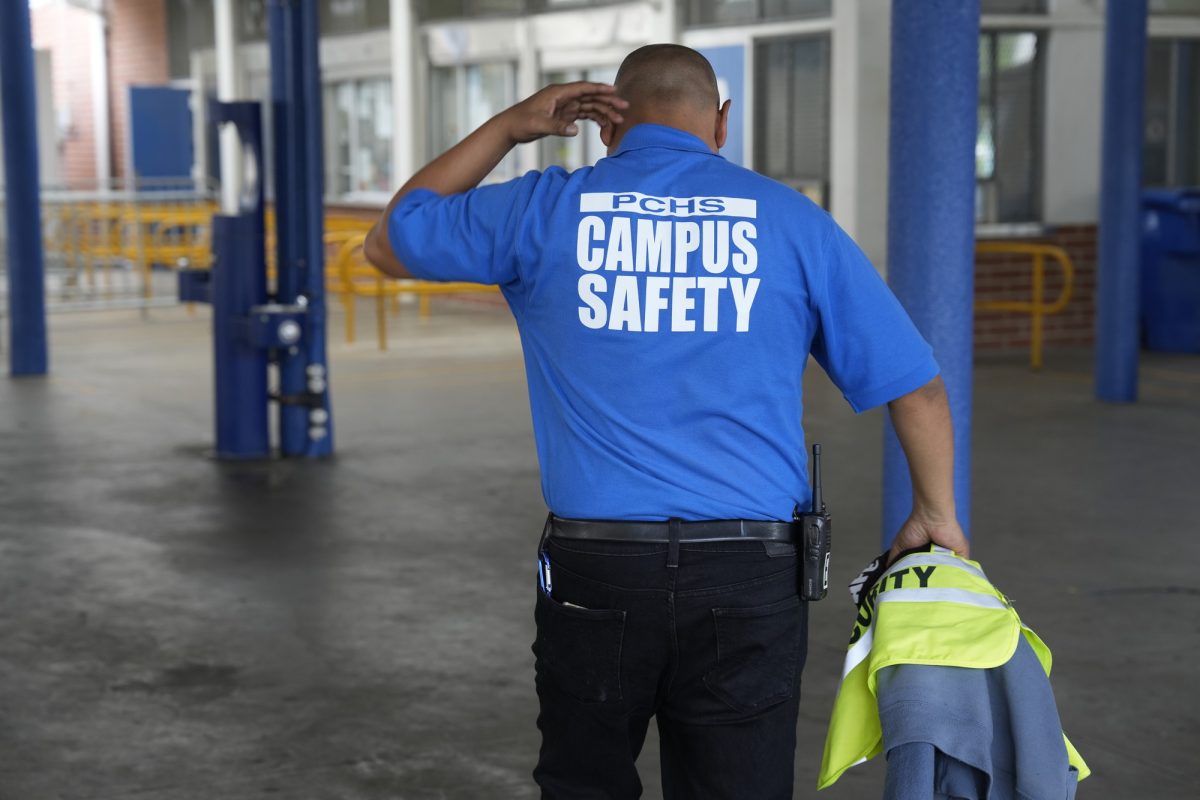Since the COVID-19 pandemic’s global school shutdowns, hundreds of thousands of school staff left their jobs largely due to mistreatment, according to the Bureau of Labor Statistics. Last year, education support staff in the Los Angeles Unified School District (LAUSD) went on strike for three days demanding higher wages — and respect. Although Pali is not understaffed and did not go on strike last year, workers said the underlying issues that contributed to the mass exits as well as the LAUSD strike are still present.
Pali staff, as well as select students, said that they notice a general mistreatment of workers by students, adding that they are seeking to rebuild that relationship. This lack of respect is observed in various forms, ranging from indifference to abuse.
Eric Navarro, a member of Pali’s campus security team, has worked at the school for two years. Navarro said that while he often has great experiences with students, he is also frequently met with resistance and disagreement.
“Sometimes [students] feel that we’re out to get them when we’re not,” he said. “We’re just here to protect them and take care of them.”
A few students at Pali recognize frequent displays of disrespect directed toward custodians and are making efforts to combat it.
Seniors Adena Hefner and Jessica Rosen are a part of Pali’s Environmental and Spatial Technology class. This course allows students to create their own community service projects. Hefner and Rosen are heading an initiative to reduce food waste and litter at Pali. While their initial intention with the project was to reduce the negative impact of Pali’s waste on the environment, Hefner and Rosen also noticed and were motivated by the negligence with which many Pali students treat the staff. They said that disputes are minor but added that even indifference negatively impacts the Pali environment.
“I personally haven’t noticed major altercations; I think people are kind [to custodians],” Rosen said. “It’s just the physical actions of leaving trash around assuming someone’s going to come and pick it up.”
Rosen and Hefner said what may be at the center of the problem is students’ “selfishness” and the resulting “dehumanization of non-instructional staff”. They added that they believe that fostering empathy in students is the key to reducing misconduct and making staff feel more welcome.
“So many of these kids are oblivious to their own privilege, but they don’t just want to be told what to do,” Hefner said. “They have to be taught emotionally, to actually evoke [empathy].”
Hefner and Rosen found that a major pattern they observed was students’ general indifference to the daily presence and tireless efforts of the staff who keep Pali functioning. They proposed a strategy to increase student awareness of the issue.
“One idea is giving the custodians a day off and seeing what the campus looks like, which might be disgusting and against school rules, but [the difference] would make a statement,” Hefner said.
Cafeteria staff said they face similar and, at times, intensified mistreatment.
Cafeteria workers at Pali regularly work nine-hour days, from 6:30 a.m. to 3:30 p.m. Throughout the day, they prepare meals for students and work during breakfast, nutrition and lunch to serve that food to Pali’s student body of nearly 3,000 teenagers.
Elsy Garcia, who began working in Pali’s food service three years ago and is the current supervisor, said she tries to use her role to make students feel safe, welcomed and comforted at school. She said she likes to display inclusivity posters and decorate the cafeteria for the holidays.
However, staff said they are met with varying levels of maturity from Pali students. Garcia said that though many students are kind and well-mannered, some can be cruel toward her and her coworkers.
“Some of our staff don’t speak fluent English, and [students] will mock them or just treat them badly,” Garcia said, adding that students often demonstrate little humanity toward staff who make and serve meals.
Garcia said that at the end of an often long and laborious workday, Pali’s cafeteria staff just want basic civility and reciprocated respect from students.
“[Students should] at least say thank you, make eye contact, show that they appreciate it,” Garcia said.
Hefner and Rosen said that the conduct toward others which some students think is okay inside school walls is so uncivil that the same students wouldn’t even behave that way in public.
“It’s just disrespectful. Some of these kids are literally going to college next year,” Rosen said.
Hefner added, “It’s pure selfishness…this school is riddled with entitlement.”
They said that oftentimes students won’t listen to administration or being preached at regarding their behavior. But Hefner and Rosen said that some type of action designed to showing heightened consideration for school support staff at Pali is essential to ensure that it is a hospitable and supportive atmosphere for all who learn and work here.
“I think if students see others stepping up [and improving their conduct], eventually they will too,” Hefner said. “People just have to start it.”









